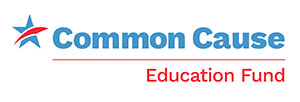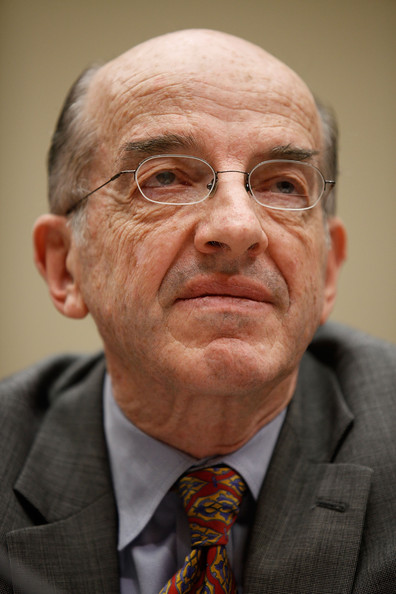Now is the Time to Get the Questions Right

Monday, May 10, 2021
Digital Beat
Now is the Time to Get the Questions Right

For those of us who spent the last four years fighting a totally depressing battle against the last Administration’s nuclear attack on the public interest, springtime has brought the hope of rebirth, regeneration, and reform. In media and telecom (my beat) we already see the budding of policies and programs to reverse the nation’s embarrassing broadband shortfalls. Broadband is now seen as essential infrastructure, as important to twenty-first-century life as electricity was to the twentieth. Not only that, but understanding broadband as a civil right seems to be taking hold. Better late than never. No one can be a fully functioning and participating citizen in today’s society without access to high-speed and affordable communications. The pandemic demonstrated how necessary broadband is for our jobs, our schooling, our health, our civic dialogue, even our practice of religions. To see the Biden Administration and many in Congress making broadband a national priority is truly encouraging. Tens of millions of households are waiting for their tickets to a better future.
Both the Federal Communications Commission (FCC) and the Federal Trade Commission (FTC) show signs of reaffirming their responsibilities to safeguard the public interest. Even without a full complement of commissioners, the FCC, under the impressive leadership of interim chair Jessica Rosenworcel, is moving forward on broadband and other issues, and with some consensus at that. Hopefully, the commission will ere long have its full five members on board so it can repair the damage that was inflicted over the past four years and then move on to the many media and communications challenges that cry out for forward-looking leadership. Its first step, once at full power, is to restore net neutrality, the prerequisite of an open internet. The previous commission, under the wrecking ball of then-chairman Ajit Pai (one of the most avid of the Trump Administration’s notorious deregulators) quickly overturned the net neutrality rules that were already in place and that had been approved by the courts. Without getting into the technicalities, the new commission can bring these rules back, and hopefully even strengthen them, by reasserting its Title II authority over broadband.
I am also pleased to see the FTC working to reassert its power to protect consumers. For too many years it has essentially ignored its rule-making authority because of a constricted interpretation of its charter. And too often it has taken a back-seat on the anti-trust powers it has, allowing more partisan Departments of Justice to lead the way. The FTC was one of the proudest achievements of progressives some 107 years ago; it is time to bring it back to the reform impulse from whence it came. This agency must now play a greater role to rein in the deceptive, unfair, discriminatory, and anti-competitive practices of the dominant platforms.
So, there are many steps these agencies and Congress can take in the months just ahead. Reforming Section 230 of the Communications Act to clarify how much liability protection internet platforms are entitled to, even as they are parties to spreading the mis- and dis-information that have so disrupted our news, information, and civic dialogue, is one candidate for attention. Protection against data abuse and personal privacy invasion is another. Too many of us fail to understand just how much of our personal information is out there floating around and subject to many kinds of misuse and outright harm.
Some among us have suggested a new government agency is what’s needed. Maybe so, but this would be really difficult to achieve. I was at the FCC when the Department of Homeland Security was formed in the aftermath of 9/11. It was not a seamless process. There was paralyzing confusion about who was going to do what, which powers remained within other critical agencies, and who was in charge. Things improved somewhat over time, but it reminds me of the old adage that when everyone is in charge, no one is in charge. All these shoals would have to be navigated again. Perhaps we can do better this time. But what powers would remain at places like the FCC, the FTC, and other cabinet and sub-cabinet posts on issues that are inherently cross-cutting, especially with regard to something so far-reaching as the internet? As just one example, on matters involving any public interest oversight of online media, would we end up with one set of policies that cross-cut the FCC, FTC, and this new agency? Is there old media and new media, and never the twain shall meet? What about funding? Both the FCC and FTC are under-funded and under-resourced today. Would the new agency further shrink their budgets? Finally, is Congress capable of getting a new agency up and running in today’s polarized political environment? Would it even provide the resources necessary for the new agency to accomplish its job? Think of the compromises that would have to be made, not to mention the lobbying impact of entrenched industries intent on preserving their power. I am not suggesting we shouldn’t explore the idea of a new agency; I’m only saying it might create more challenges than its proponents currently envision. Let’s tread carefully.
I do not believe that any of the specific approaches presently circulating can, by itself, deliver the public interest internet that the country so urgently requires. They may help, of course, but we need a wider framework. I’m talking about holistically addressing the many challenges the internet confronts today. I’m talking about a framework that is premised on the original vision for what the internet should be—a place where users and not monopolies have the upper hand; where citizens are not products to be sold to advertisers, as we are now, but are instead the principal beneficiaries of the awesome opportunities created by this transformative technology; wherein the news and information reaching us is reliable, trustworthy, and conducive to improving the quality of our national dialogue and promoting the civic engagement that sustains successful self-government.
This is why I have suggested a White House Task Force or Presidential Commission, time-limited to probably one year, to look at the future of the internet and our information infrastructure and come up with some recommendations that can be shared with the country, the Administration, and the Congress. The task force I suggest would be broadly-based, consisting of various levels of government, innovators and entrepreneurs, business (small and medium-size certainly included), labor, innovators, journalists, technical experts, academe, public interest organizations, and a cross-section of citizens representing the wonderful diversity of our nation. I favor a task force coming from the White House because that level of visibility is best able to draw media coverage and to engender a national conversation.
A central purpose of this initiative is not just to come up with recommendations, but to ensure we are asking the right questions. This would not be a search for silver bullet solutions, but for establishing a vision and a rationale that can give us the internet we so desperately need. It would not ignore, but go beyond, the issues de jour and focus on the more profound ramifications of internet technology. What does it mean for the future of work, for the economy, the promotion of diversity, equal opportunity, education, and so on? How do we build digital and media literacy? What does artificial intelligence online portend for the future of America? The list of questions goes on. Equally important, the right kind of task force would hopefully develop other questions nobody has even thought about. As I told a group recently, our current approach to the internet reminds me about the story of the blindfolded persons trying to figure out what an elephant looks like. One person touches a part of the animal and thinks she knows; another individual touches a different part and thinks he knows. Neither does. It is time for us to examine the whole beast.
A viable internet framework must be built on more than we have now. A public interest internet is integral to our economic and social well-being and to the safety and security of our people. It must be anchored on terra firma. Certainly, we don’t want to repeat the bleak history of what happened when the Communications Act attempted to implement public interest oversight on the broadcast media and we saw the debate descend to a non-sensical claim that the only way to do that was to base public interest oversight on the scarcity of the airwaves. (Actually, the airwaves are still scarce. Witness the enormous sums being paid to access them by huge businesses at FCC auctions, not to mention the tens of millions of households that lack high-speed broadband even at this late date of 2021. But that’s another story.) We need to make the rationale of the public interest internet clear as the springtime sunrise in order to avoid another decades-long free-for-all of the kind that the special interests used to undermine the Communications Act. It was by no means a model Act, to be sure, but its pro-consumer and pro-competitive provisions began to be undermined the day after it was signed into law. We cannot let that happen again.
This is our chance to redeem the promise of the internet and to thereby make it democracy’s tool. While the window is open, let’s breathe in the heady air of springtime promise.
Michael Copps served as a commissioner on the Federal Communications Commission from May 2001 to December 2011 and was the FCC's Acting Chairman from January to June 2009. His years at the Commission have been highlighted by his strong defense of "the public interest"; outreach to what he calls "non-traditional stakeholders" in the decisions of the FCC, particularly minorities, Native Americans and the various disabilities communities; and actions to stem the tide of what he regards as excessive consolidation in the nation's media and telecommunications industries. In 2012, former Commissioner Copps joined Common Cause to lead its Media and Democracy Reform Initiative. Common Cause is a nonpartisan, nonprofit advocacy organization founded in 1970 by John Gardner as a vehicle for citizens to make their voices heard in the political process and to hold their elected leaders accountable to the public interest. Learn more about Commissioner Copps in The Media Democracy Agenda: The Strategy and Legacy of FCC Commissioner Michael J. Copps
The Benton Institute for Broadband & Society is a non-profit organization dedicated to ensuring that all people in the U.S. have access to competitive, High-Performance Broadband regardless of where they live or who they are. We believe communication policy - rooted in the values of access, equity, and diversity - has the power to deliver new opportunities and strengthen communities.
© Benton Institute for Broadband & Society 2021. Redistribution of this email publication - both internally and externally - is encouraged if it includes this copyright statement.
For subscribe/unsubscribe info, please email headlinesATbentonDOTorg






